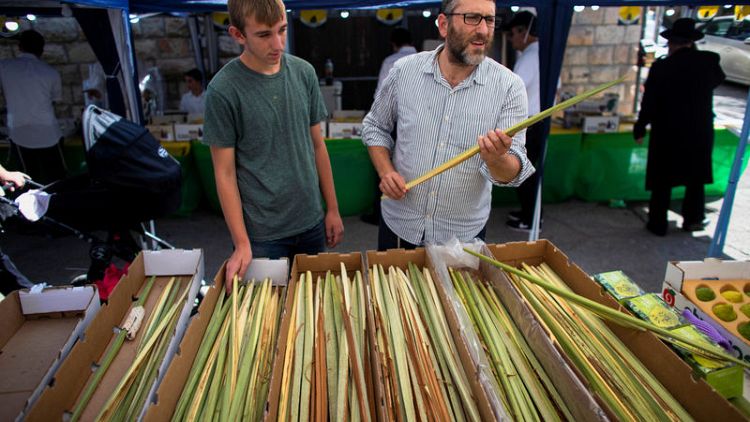JERUSALEM (Reuters) - With the Jewish high holy days winding down, many Israelis can be found dining, socialising and even sleeping in frond-covered huts erected on their balconies or in their back yards.
The week-long festival of Sukkot, or "huts" in Hebrew, follows the Jewish new year and solemn fast day of Yom Kippur and commemorates the flight of the Israelites from ancient Egypt.
According to Jewish tradition, each sukka - an example of which can been seen in these images of the Stanleigh family's celebrations in Jerusalem - should be a temporary structure with a roof made of natural materials like palm fronds or bamboo so as to allow a partial view of the heavens.
This is meant to serve as a reminder of the fragility of physical life and re-focus thoughts on deeper religious values.
"The sense of the holiday of Sukkot is joy and family," said Yoni Stanleigh, who was joined in his sukka by his wife Noemie and their children Adin, Maor, Nehora, Alma and Ayana.
"We move out of the our normal residence into our sukka, and it in we rejoice in our family, in our tradition and in our land."
(Reporting by Maayan Lubell; Editing by Alexandra Hudson)
